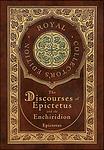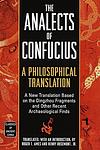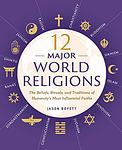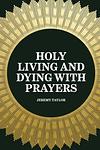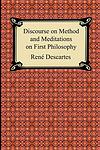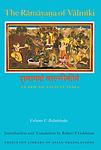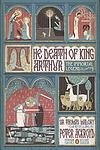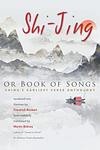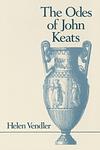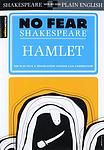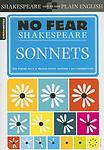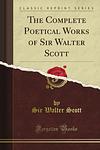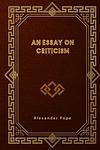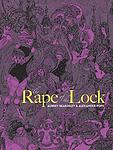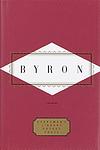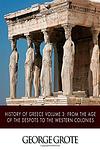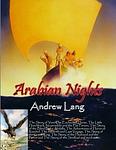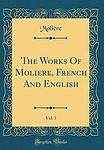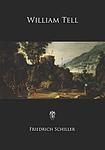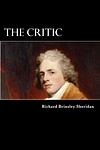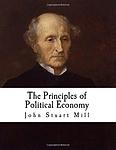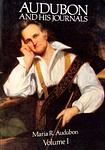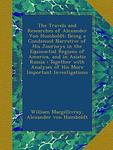John Lubbock, The Choice of Books (1896)
This is one of the 305 lists we use to generate our main The Greatest Books list.
-
The Bible by Unknown
The Bible is the central religious text of Christianity, comprising the Old and New Testaments. It features a diverse collection of writings including historical narratives, poetry, prophecies, and teachings. These texts chronicle the relationship between God and humanity, detail the life, death, and resurrection of Jesus Christ, and follow the early Christian church. Considered divinely inspired by believers, it serves as a foundational guide for faith and practice, influencing countless aspects of culture and society worldwide.
The 34th Greatest Book of All Time -
Meditations by Marcus Aurelius
"Meditations" is a collection of personal writings by a Roman Emperor, providing deep insights into Stoic philosophy. The book is a series of introspective reflections on how to deal with life's challenges with wisdom, integrity, self-discipline, and benevolent affection for all mankind. It serves as a manual for self-improvement and moral guidance, emphasizing the importance of accepting things outside of one's control and maintaining a tranquil mind amidst adversity.
The 390th Greatest Book of All Time -
Discourses Of Epictetus by Epictetus
"Discourses of Epictetus" is a philosophical work that compiles the teachings of the Stoic philosopher Epictetus, as recorded by his pupil Arrian. The text is a practical guide for applying philosophy to daily life, emphasizing ethics, personal freedom, and mental strength. It explores how to live virtuously in accordance with nature, control one's emotions, and maintain tranquility by focusing only on what is within one's control. The discourses delve into discussions about the nature of human beings, the purpose of life, and the path to happiness, offering insights that aim to equip individuals with the resilience and wisdom necessary to lead fulfilling lives.
The 1958th Greatest Book of All Time -
Enchiridion Of Epictetus by Epictetus
The book is a concise manual of ethical advice compiled by Arrian, a student of the Stoic philosopher Epictetus. This practical guide provides philosophical teachings on how to live a virtuous life, emphasizing the importance of personal freedom and the control of one's emotions. It advocates for focusing on what is within one's power—distinguishing between what one can change and what one cannot—and stresses the significance of developing resilience to external circumstances. The text is foundational in the discipline of Stoicism, offering insights into achieving peace of mind and living in harmony with the natural world.
The 6746th Greatest Book of All Time -
Analects by Confucius
The Analects is a collection of sayings and teachings attributed to the Chinese philosopher Confucius and his disciples. The book emphasizes the importance of personal and societal morality, filial piety, and the cultivation of knowledge and virtue. Confucius stresses the importance of leading by example and treating others with respect and kindness. The Analects has had a profound impact on Chinese culture and philosophy, and its teachings continue to be studied and applied today.
The 461st Greatest Book of All Time -
The Buddha And His Religion by J. Barthelemy Saint-Hilaire
"The Buddha and His Religion" offers a comprehensive exploration of the life and teachings of Siddhartha Gautama, known as the Buddha, and the subsequent development of Buddhism. The book delves into the historical and cultural contexts of ancient India that shaped and were shaped by Buddhist philosophy. It examines the core principles of Buddhism, including the Four Noble Truths and the Eightfold Path, and discusses the spread and adaptation of Buddhism in various regions. Additionally, the text analyzes the organizational structure of the Buddhist community, the role of monks and laity, and the evolution of Buddhist thought and practice over time.
The 6746th Greatest Book of All Time -
The Apostolic Fathers by William Wake, Edward Burton
"The Apostolic Fathers" is a compilation and analysis of early Christian writings that are attributed to the leaders directly following the Apostles, known as the Apostolic Fathers. This collection includes important texts such as the letters of Clement, the teachings of Polycarp, and the Shepherd of Hermas, among others. These writings provide valuable insights into the beliefs, practices, and organizational structures of early Christian communities. The book not only presents these texts but also offers commentary and historical context provided by the editors, helping to bridge the gap between the time of the Apostles and the later Christian church.
The 6746th Greatest Book of All Time -
The Imitation Of Christ by Thomas à Kempis
"The Imitation of Christ" is a Christian devotional book that emphasizes the spiritual life and interior devotion to Christ above the distractions of the external world. It advocates for humility, obedience, and self-denial as the pathways to true peace and spiritual fulfillment. The text is structured as a series of reflections and dialogues between Christ and the disciple, guiding the reader through practical and profound advice on living a life deeply rooted in faith. This work has been highly influential in Christian spirituality and is considered a classic in Christian literature, offering timeless insights into the nature of God and the journey of the soul toward divine union.
The 6746th Greatest Book of All Time -
Confessions by Augustine
"Confessions" is an autobiographical work by a renowned theologian, in which he outlines his sinful youth and his conversion to Christianity. It is written in the form of a long, introspective prayer directed to God, exploring the author's spiritual journey and deep philosophical ponderings. The book is renowned for its eloquent and deeply personal exploration of faith, making it a cornerstone of Christian theology and Western literature.
The 148th Greatest Book of All Time -
The Quran by Unknown
This book is a compilation of the religious text of Islam, believed by Muslims to be a revelation from God. It is divided into chapters, which are then divided into verses. The text discusses various aspects of life and provides guidance on morality, ethics, law, and personal conduct. It also includes narratives of several prophets, their lives, and their interactions with their communities. The book is considered the ultimate source of spiritual guidance for Muslims worldwide.
The 443rd Greatest Book of All Time -
Tractatus Theologico Politicus by Baruch de Spinoza
"Tractatus Theologico-Politicus" is a seminal work that explores the relationship between religion, politics, and philosophy. The author argues for the separation of theology and philosophy, asserting that the purpose of the state is to promote peace and security through rational governance, free from religious influence. He critiques the role of organized religion in politics and defends the freedom of thought and expression, advocating for a secular, democratic political order. The work also delves into biblical criticism, challenging traditional interpretations and suggesting that the Bible should be analyzed through a historical and contextual lens.
The 1541st Greatest Book of All Time -
The Course in Positive Philosophy by Auguste Comte
"The Course in Positive Philosophy" is a philosophical work that introduces and elaborates on the concept of positivism, a belief system that emphasizes empirical science and factual knowledge. The author argues that society has passed through three stages: theological, metaphysical, and positive, with the positive stage being the most advanced and accurate. He asserts that all knowledge must come from observable phenomena and scientific inquiry, rejecting metaphysics and theology. The book is a cornerstone of modern sociology and philosophy, influencing many later thinkers.
The 4689th Greatest Book of All Time -
Pensées by Blaise Pascal
"Pensées" is a collection of philosophical and theological thoughts and ideas by a renowned French mathematician and physicist. The book delves into various aspects of human existence, exploring the nature of faith, reason, and the human condition. It also presents arguments for the existence of God, including the famous wager argument. The book is known for its profound insights into the human experience and its exploration of the complexities of belief and doubt.
The 344th Greatest Book of All Time -
The Analogy Of Religion by Joseph Butler
"The Analogy of Religion" is a philosophical work that explores the evidence of God in the design and governance of the world, arguing for a rational basis for faith. The book discusses the similarities between the natural world and human behavior, suggesting that as we understand one, we can infer about the other. It addresses the role of religion in human life, the existence of evil, and the future state of the soul, advocating for the reasonableness of Christianity by comparing revealed religion to the natural world. The author uses analogy to defend the credibility of religious doctrines against the skepticism of the era, emphasizing morality and the human conscience as intrinsic parts of religious practice.
The 6746th Greatest Book of All Time -
Holy Dying by Jeremy Taylor
The book in question is a Christian devotional work that explores the theme of death and the proper attitudes and practices one should adopt in preparation for it. It serves as a guide for the dying and those attending to them, offering theological reflections, moral instruction, and prayers intended to comfort and prepare souls for their final journey. The text emphasizes the transient nature of life, the importance of repentance, and the virtues of a holy life, aiming to provide readers with a sense of peace and a roadmap for achieving a blessed death in accordance with Christian teachings.
The 4149th Greatest Book of All Time -
Pilgrim's Progress by John Bunyan
This Christian allegory follows a man named Christian on his journey from his hometown, the "City of Destruction," to the "Celestial City" on Mount Zion. Christian faces numerous obstacles and temptations along the way, including the Slough of Despond, Vanity Fair, and the Valley of the Shadow of Death. The narrative serves as a metaphor for the believer's journey from sin and despair to salvation and eternal life.
The 353rd Greatest Book of All Time -
The Christian Year by John Keble
"The Christian Year" is a collection of poems for all the Sundays and some other feasts of the liturgical year of the Anglican Church. Written to deepen the spiritual experience of believers through the Christian calendar, the book reflects on themes and stories from the Bible, aiming to inspire and instill devotion in its readers. Each poem is associated with a particular occasion, seeking to evoke the reflective and devotional mood appropriate to that day, and is widely appreciated for its beauty of language and moral earnestness.
The 6746th Greatest Book of All Time -
Apology by Plato
This philosophical text is a dialogue of Socrates' defense in 399 BC against the charges of 'corrupting the young, and by not believing in the gods in whom the city believes, but in other daimonia that are novel.' The dialogue is Socrates' defense at his trial and is his final public statement before his execution. In it, he discusses the moral and philosophical justification for his actions and beliefs, ultimately leading to his conviction and death.
The 953rd Greatest Book of All Time -
Crito by Plato
"Crito" is a philosophical dialogue where the main character, a renowned philosopher, is in prison awaiting execution and is visited by his friend, Crito, who urges him to escape. The philosopher argues that since the laws of Athens have given him life, education, and many other benefits, it would be unjust for him to break those laws by escaping. The dialogue explores themes of justice, law, obligation, and the social contract.
The 1541st Greatest Book of All Time -
Phaedo by Plato
"Phaedo" is a philosophical dialogue that takes place in ancient Greece, where the main character, a philosopher, is awaiting his execution. The story is a discussion on the nature of the afterlife, the immortality of the soul, and the theory of forms. The philosopher argues that the soul is immortal and that we should not fear death. He also discusses his theory of forms, stating that the world we perceive is merely a shadow of the true world of forms. The dialogue ends with the philosopher calmly accepting his fate, illustrating his belief in the immortality of the soul.
The 990th Greatest Book of All Time -
The Republic by Plato
"The Republic" is a philosophical text that explores the concepts of justice, order, and character within the context of a just city-state and a just individual. It presents the idea of a utopian society ruled by philosopher-kings, who are the most wise and just. The dialogue also delves into theories of education, the nature of reality, and the role of the philosopher in society. It is a fundamental work in Western philosophy and political theory.
The 142nd Greatest Book of All Time -
Memorabilia by Xenophon
"Memorabilia" is a collection of dialogues and personal reflections that capture the teachings and thoughts of the philosopher Socrates. Compiled by one of his disciples, the work defends Socrates against the accusations that led to his trial and execution, portraying him as a wise and ethical figure who sought to improve the lives of others through questioning and moral inquiry. Through various conversations with notable figures of his time, the text explores themes of justice, virtue, and the pursuit of good, providing a significant insight into Socratic philosophy and the intellectual milieu of ancient Athens.
The 6746th Greatest Book of All Time -
The Politics by Aristotle
"The Politics" is a foundational text in political philosophy, where the author explores various forms of government and their respective merits and drawbacks. The work delves into the nature of the state, citizenship, and the role of the middle class in achieving political stability. It emphasizes the importance of a constitution that balances the interests of different parts of society and discusses the conditions under which various types of governments can be successful. The author also examines the relationship between politics and ethics, asserting that the main purpose of the state is to promote a good and virtuous life among its citizens.
The 6746th Greatest Book of All Time -
On The Crown by Demosthenes
"On The Crown" is a significant political oration by the ancient Athenian statesman and orator, delivered in 330 BC. The speech serves as a robust defense of the speaker's political career and policies, particularly focusing on his efforts to mobilize Athens against the imperial ambitions of Philip II of Macedon. It is also a rebuttal against accusations made by his political rival, who criticized his leadership and decisions. The oration is celebrated not only for its eloquent expression and persuasive rhetoric but also for its deep insight into the political dynamics of the time, highlighting themes of patriotism, justice, and civic duty in the face of external threats and internal discord.
The 6746th Greatest Book of All Time -
Treatises On Friendship And Old Age by Marcus Tullius Cicero
The book comprises two philosophical essays that delve into the nature and significance of friendship and the challenges and wisdom of old age. The first essay explores the meaning of true friendship, its role in society, and its importance as a foundation for moral and happy life, emphasizing mutual respect, virtue, and genuine affection. The second essay addresses the concerns of aging, arguing against the common perceptions of old age as a miserable phase. Instead, it presents old age as a period capable of great mental and intellectual activity and satisfaction, provided one has lived a life based on virtue and fulfillment. Through these essays, the text provides timeless insights into handling some of life's most profound transitions with grace and wisdom.
The 3788th Greatest Book of All Time -
On Obligations by Marcus Tullius Cicero
"On Obligations" is a philosophical treatise that explores the ethical and moral duties of individuals in society. Written in the form of a dialogue, the text delves into the nature of justice, the importance of the common good, and the role of virtue in personal and public life. The author articulates a framework for understanding and fulfilling one's obligations, which he argues are derived from both natural law and human reason. Through a detailed examination of various ethical dilemmas and practical situations, the work provides insights into how individuals should act with integrity and wisdom to uphold both legal and moral responsibilities.
The 3788th Greatest Book of All Time -
Parallel Lives by Plutarch
"Parallel Lives" is a collection of biographies of famous Greek and Roman figures, written in pairs to draw comparisons between their lives. The work explores the influence of character on the lives and destinies of these historical figures. The biographies are not only a record of the lives of these individuals, but also provide insight into the times in which they lived, offering a unique perspective on the history and culture of the ancient world.
The 631st Greatest Book of All Time -
A Treatise Concerning the Principles of Human Knowledge by George Berkeley
This philosophical work challenges the idea of materialism, arguing that objects only exist as a perception of the mind. The author asserts that we can only directly know sensations and ideas of objects, not the objects themselves. He also discusses the role of God, suggesting that our perceptions are dependent on the will of a higher power. The text is a significant contribution to the field of metaphysics and epistemology, offering a unique perspective on the nature of human knowledge and perception.
The 3398th Greatest Book of All Time -
Discourse on Method by Rene Descartes
The book is a philosophical and autobiographical treatise that introduces a new form of scientific and philosophical method, which emphasizes on doubt and systematic questioning as the primary means to achieve knowledge. The author argues that by doubting everything, one can then rebuild knowledge, piece by piece, on a more solid foundation. This method is applied to a wide range of topics, including God's existence, the nature of the human mind and body, and the acquisition of knowledge.
The 1249th Greatest Book of All Time -
An Essay Concerning Human Understanding by John Locke
This philosophical work explores the concept of human understanding, proposing that all knowledge is derived from experience. The author argues against innate ideas, suggesting instead that the mind is a blank slate at birth, filled over time through sensory and reflective experiences. The book covers a wide range of topics, including language, memory, identity, and the limits of human knowledge, and is considered a foundational text in empiricism.
The 735th Greatest Book of All Time -
The Iliad by Homer
This epic poem focuses on the final weeks of the Trojan War, a conflict between the city of Troy and the Greek city-states. The story explores themes of war, honor, wrath, and divine intervention, with a particular focus on the Greek hero Achilles, whose anger and refusal to fight have devastating consequences. The narrative also delves into the lives of the gods, their relationships with humans, and their influence on the course of events.
The 37th Greatest Book of All Time -
The Odyssey by Homer
This epic poem follows the Greek hero Odysseus on his journey home after the fall of Troy. It takes Odysseus ten years to reach Ithaca after the ten-year Trojan War. Along the way, he encounters many obstacles including mythical creatures, divine beings, and natural disasters. Meanwhile, back in Ithaca, his wife Penelope and son Telemachus fend off suitors vying for Penelope's hand in marriage, believing Odysseus to be dead. The story concludes with Odysseus's return, his slaughter of the suitors, and his reunion with his family.
The 29th Greatest Book of All Time -
Works and Days by Hesiod
"Works and Days" is an ancient Greek epic poem that provides advice on life and farming. The author uses the myth of Prometheus and Pandora to explain why life is hard for humans, attributing it to Pandora's release of evils into the world. The work serves as a farmer's almanac, giving detailed advice on the best times to plant and harvest crops, and also provides moral guidance, emphasizing the importance of hard work, justice, and piety.
The 1465th Greatest Book of All Time -
The Theogony by Hesiod
"The Theogony" is an ancient Greek epic poem that explores the genealogy of the gods. The narrative begins with the primordial deities Chaos, Gaia, and Eros, then progresses through the generations of Titans, Olympian gods, and mortal heroes. It provides an account of the struggles and power dynamics among these divine beings, culminating in the reign of Zeus as the king of the gods. The poem is a significant source of Greek mythology and offers insights into the ancient Greeks' worldview and their understanding of the universe's origins.
The 1399th Greatest Book of All Time -
The Aeneid by Virgil
This epic poem tells the story of Aeneas, a Trojan who travels to Italy, where he becomes the ancestor of the Romans. It includes a series of prophecies about Rome's future and the deeds of heroic individuals, and is divided into two sections, the first illustrating the hero's journey and the second detailing the wars and battles that ensue as Aeneas attempts to establish a new home in Italy. The narrative is deeply imbued with themes of duty, fate, and divine intervention.
The 75th Greatest Book of All Time -
Eclogues by Virgil
The book in question is a collection of ten pastoral poems that delve into the idealized lives of shepherds in classical antiquity, set against the backdrop of a changing rural landscape. Through dialogues and monologues, the poems explore themes of love, the bucolic lifestyle, and the political turmoil of the time. The work reflects on the tensions between the simplicity of rural life and the encroaching influence of external forces, often drawing on mythological and allegorical elements to convey its messages. The pastoral mode serves as a platform for the poet to address broader social and political issues, while also celebrating the beauty and tranquility of nature.
The 4149th Greatest Book of All Time -
Georgics by Virgil
The work in question is a didactic poem divided into four books, which collectively offer a rich and detailed guide to various aspects of agricultural life and practices in the ancient world. It covers topics such as the cultivation of crops, the care of trees and vines, the husbandry of livestock, and the management of bees, all interwoven with philosophical reflections on humanity's relationship with nature and the gods. The poem also explores the hardships and rewards of rural life, emphasizing the importance of hard work, experience, and understanding the rhythms and moods of the natural world. Throughout, the text is imbued with a deep appreciation for the land and serves as both a practical manual and a meditation on the art of living in harmony with the environment.
The 4149th Greatest Book of All Time -
India Under British Rule From The Foundation Of The East India Company by James Talboys Wheeler
This book provides a comprehensive historical account of British India, beginning with the establishment of the East India Company, which laid the groundwork for British dominance in the region. It explores the complex interactions between the colonizers and the native populations, detailing the economic, political, and social changes that unfolded as the British solidified their control over the Indian subcontinent. The narrative delves into the administrative structures and policies implemented by the British, their impact on the local societies, and the gradual emergence of resistance movements that set the stage for India's struggle for independence.
The 6746th Greatest Book of All Time -
Ramayana by Valmiki
The book is an ancient Indian epic poem which follows the journey of Prince Rama as he embarks on a quest to rescue his beloved wife Sita from the clutches of Ravana, the demon king. The narrative explores themes of morality, dharma (duty/righteousness), and the struggle between good and evil. The story is not just about Rama's battle against Ravana, but also his spiritual journey and the importance of upholding one's duties and responsibilities.
The 612th Greatest Book of All Time -
Mahabharata by Vyasa
The book is an English translation of the ancient Indian epic, originally written in Sanskrit, which tells the story of a great war that took place between two groups of cousins, the Kauravas and the Pandavas. The narrative explores themes of duty, righteousness, and honor while also featuring a rich array of gods, goddesses, and supernatural beings. It is not only a tale of war and conflict, but also a profound philosophical and spiritual treatise, containing the Bhagavad Gita, a sacred text of Hindu philosophy.
The 315th Greatest Book of All Time -
Shahnameh by Ferdowsi
"Shahnameh" is an epic poem that chronicles the history of pre-Islamic Persia, from the creation of the world up until the Islamic conquest of Persia in the 7th century. This literary masterpiece intertwines myth, history, and folklore to tell the stories of legendary kings, heroes, and villains, such as the tragic hero Rostam and the tyrant Zahhak. The narrative also explores themes of love, loss, and moral dilemmas, providing a rich and nuanced portrayal of Persian culture and identity.
The 2399th Greatest Book of All Time -
The Nibelungenlied by Anonymous
"The Nibelungenlied" is a Middle High German epic poem that narrates the story of dragon-slayer Siegfried at the court of the Burgundians, his murder, his wife Kriemhild's revenge, and the destruction of the Burgundians. The narrative is set in the early medieval period and combines elements of Norse mythology, courtly love, and heroic legend. The poem explores themes of honor, loyalty, love, betrayal, and revenge, and is considered one of the most important works of German literature.
The 607th Greatest Book of All Time -
Le Morte d'Arthur by Thomas Malory
This classic work is a compilation of stories and legends about the legendary King Arthur, his knights, and the Round Table. It tells of Arthur's rise to power, his quest for the Holy Grail, and his tragic downfall. The book, written in the 15th century, is considered one of the most influential pieces of Arthurian literature and has significantly shaped the modern perception of Arthur, Merlin, Guinevere, Lancelot, and other iconic characters.
The 360th Greatest Book of All Time -
The Book of Songs by China
"The Book of Songs" is a collection of ancient Chinese poetry, providing a rich cultural and historical insight into early Chinese society. The anthology includes various types of poems, such as folk songs, hymns, and courtly songs, reflecting the life, customs, and beliefs of different social classes. It serves as a significant literary work and historical document, revealing the evolution of the Chinese language, thoughts, and values over centuries.
The 2017th Greatest Book of All Time -
The Recognition of Sakuntala by Kālidāsa
"The Recognition of Sakuntala" is an ancient Indian play that tells the story of a beautiful woman named Sakuntala who lives in a hermitage and falls in love with King Dushyant. After a series of misunderstandings and a curse that causes the king to forget Sakuntala, the two are eventually reunited when a fisherman finds the royal signet ring that Dushyant gave Sakuntala, leading to her recognition. The play is a classic example of the Indian dramatic tradition, with its mix of romance, comedy, and elements of the supernatural.
The 1238th Greatest Book of All Time -
Prometheus Bound by Aeschylus
"Prometheus Bound" is a tragedy set in ancient Greece that tells the story of the Titan Prometheus, who defies the gods by giving humans the gift of fire, a symbol of knowledge and civilization. As punishment, Zeus chains Prometheus to a rock in the Caucasus Mountains where he is tormented by a vulture that eats his liver every day, only for it to grow back overnight. Despite his suffering, Prometheus refuses to submit to Zeus' will, embodying the human spirit's unyielding resistance against oppression.
The 483rd Greatest Book of All Time -
Oresteia by Aeschylus
"Oresteia" is a trilogy of Greek tragedies that tells the story of the House of Atreus. It begins with King Agamemnon's return from the Trojan War and his subsequent murder by his wife, Clytemnestra, and her lover, Aegisthus. The second play focuses on the revenge of their son, Orestes, who kills his mother and her lover to avenge his father's death. The final play deals with the trial of Orestes by the gods for the crime of matricide, resulting in his acquittal and the end of the curse on the House of Atreus. The trilogy explores themes of justice, vengeance, and the intervention of the gods in human affairs.
The 250th Greatest Book of All Time -
Antigone by Sophocles
This ancient Greek tragedy follows the story of Antigone, a young woman who defies the king's edict in order to bury her brother according to their religious customs. The king, her uncle, sentences her to death for her disobedience, leading to a series of tragic events including his own son's suicide. The play explores themes of loyalty, honor, obedience, and the conflict between the laws of the state and the laws of the gods.
The 138th Greatest Book of All Time -
Oedipus the King by Sophocles
"Oedipus the King" is a tragic play that revolves around the life of Oedipus, the king of Thebes, who is prophesied to kill his father and marry his mother. Despite his attempts to avoid this fate, Oedipus unknowingly fulfills the prophecy. When he discovers the truth about his actions, he blinds himself in despair. The play explores themes of fate, free will, and the quest for truth, highlighting the tragic consequences of human hubris and ignorance.
The 80th Greatest Book of All Time -
Oedipus at Colonus by Sophocles
"Oedipus at Colonus" is a tragic play that follows the final days of Oedipus, the former king of Thebes. Oedipus, now blind and exiled, arrives at the town of Colonus where he is initially rejected due to the curse that follows him. However, after revealing a prophecy that his burial place will bring prosperity to the city that hosts it, he is allowed to stay. The play explores themes of fate, guilt, and redemption, ending with Oedipus's peaceful death and ascension to a semi-divine status.
The 249th Greatest Book of All Time -
Medea by Euripides
"Medea" is a Greek tragedy that tells the story of Medea, a former princess of the "barbarian" kingdom of Colchis, and her husband Jason, who leave her to marry Glauce, the daughter of Creon, king of Corinth. In a fit of rage, Medea decides to take revenge on Jason by killing their children, Jason's new wife, and her father, King Creon. The play explores themes of revenge, women's rights, and the dangers of absolute power.
The 218th Greatest Book of All Time -
The Knights by Aristophanes
"The Knights" is a satirical comedy that delves into the political landscape of ancient Athens, critiquing the city's leadership through the allegory of a household. The play focuses on the conflict between a noble but dimwitted horseman and a cunning and manipulative sausage-seller, both vying for the favor of their master, who represents the Athenian people. The sausage-seller, with the help of the chorus of knights, ultimately triumphs, symbolizing the hope for a new and better leader. The work is a pointed commentary on the demagoguery and corruption of the time, using humor and absurdity to explore themes of power, populism, and the responsibilities of citizenship.
The 2399th Greatest Book of All Time -
The Clouds by Aristophanes
"The Clouds" is a satirical play that critiques the intellectual and moral corruption of Athenian society by focusing on a father-son relationship. The father, in an effort to evade debt, sends his son to a school of sophistry to learn the art of manipulating language and logic to win arguments. The story explores themes of education, morality, and the conflict between traditional and modern values. The play is well-known for its critical portrayal of Socrates as a sophist and its comedic elements.
The 808th Greatest Book of All Time -
Odes by John Keats
"Odes" is a collection of poems that reflect on themes of love, beauty, death, and the passage of time. Through vivid imagery and powerful emotion, the author explores the human condition and our place in the world, often drawing on classical mythology and the natural world for inspiration. The poems are known for their intense lyricism and complex structure, making them some of the most celebrated in English literature.
The 1072nd Greatest Book of All Time -
The Canterbury Tales by Geoffrey Chaucer
The Canterbury Tales is a collection of 24 stories that follows a group of pilgrims traveling from London to Canterbury to visit the shrine of Saint Thomas Becket. Told in Middle English, the tales are narrated by a diverse group of pilgrims, including a knight, a miller, a reeve, and a pardoner, who share their stories to pass the time during their journey. The tales, which range from chivalrous romances to bawdy fabliaux, provide a colorful, satirical, and critical portrayal of 14th century English society.
The 103rd Greatest Book of All Time -
First Folio by William Shakespeare
This collection is a compilation of 36 plays by a renowned English playwright, published seven years after his death. It includes comedies, histories, and tragedies, some of which had never been published before. Notable works in the compilation include "Macbeth," "Julius Caesar," "Twelfth Night," "The Tempest," and "As You Like It." The collection is considered one of the most influential books ever published in the English language, as it preserved many of the playwright's works that might have otherwise been lost.
The 126th Greatest Book of All Time -
The Sonnets by William Shakespeare
"The Sonnets" is a collection of 154 poems that explore themes such as love, beauty, politics, and mortality. The sonnets are written in a specific form that the poet popularized, consisting of 14 lines with a specific rhyme scheme. The collection is divided into two sections: the first 126 sonnets are addressed to a young man, while the last 28 are addressed to a woman known as the 'dark lady'. This collection is widely considered one of the greatest achievements in English literature.
The 495th Greatest Book of All Time -
Paradise Lost by John Milton
"Paradise Lost" is an epic poem that explores the biblical story of Adam and Eve's fall from grace in the Garden of Eden. It delves into their temptation by Satan, their subsequent expulsion, and the consequences of their disobedience. The narrative also provides a complex portrayal of Satan as a rebellious angel, who, after being cast out of Heaven, seeks revenge by causing mankind's downfall. The poem is a profound exploration of free will, divine justice, and the human struggle with good and evil.
The 107th Greatest Book of All Time -
Lycidas, Comus, And The Minor Poems by John Milton
This collection brings together some of the most notable early works of a seminal figure in English literature, showcasing his mastery of verse and profound engagement with themes of morality, virtue, and the human condition. "Lycidas" is an elegy that mourns the death of a friend while meditating on the poetic vocation and the nature of life and death. "Comus" is a masque that explores the struggle between chastity and licentiousness through the story of a virtuous lady resisting the temptations of the titular enchanter. The minor poems included offer a glimpse into the writer's development as a poet, with pieces that range from the pastoral to the personal, reflecting both classical influences and innovative poetics that would come to characterize his later, more epic works.
The 4149th Greatest Book of All Time -
The Divine Comedy by Dante Alighieri
In this epic poem, the protagonist embarks on an extraordinary journey through Hell (Inferno), Purgatory (Purgatorio), and Paradise (Paradiso). Guided by the ancient Roman poet Virgil and his beloved Beatrice, he encounters various historical and mythological figures in each realm, witnessing the eternal consequences of earthly sins and virtues. The journey serves as an allegory for the soul's progression towards God, offering profound insights into the nature of good and evil, free will, and divine justice.
The 27th Greatest Book of All Time -
The Faerie Queene by Edmund Spenser
"The Faerie Queene" is an epic allegorical poem that follows several medieval knights, representing various virtues, as they navigate quests assigned by the Faerie Queene. The narrative is deeply imbued with Christian symbolism and Elizabethan political allegory. Each book in the series focuses on a particular virtue and the knight who embodies it, presenting a complex, interconnected tapestry of moral, ethical, and political conduct. The poem is renowned for its intricate allegories, rich characterization, and the creation of a unique verse form known as the Spenserian stanza.
The 843rd Greatest Book of All Time -
The Works Of John Dryden by John Dryden
This compilation is a comprehensive collection of the literary output of a prominent 17th-century English poet, critic, and playwright. It encompasses a wide array of genres, including satirical verses, heroic couplets, and influential essays on dramatic theory. The author's work is notable for its wit, intellectual depth, and the adaptation of classical models for contemporary audiences. His plays and poems reflect the political and social milieu of Restoration England, and his critical essays are seminal in the development of literary criticism. The collection showcases the author's mastery of language and his significant contribution to English literature.
The 2399th Greatest Book of All Time -
The Poetical Works Of Sir Walter Scott by Sir Walter Scott
This collection brings together the extensive and celebrated poetic works of Sir Walter Scott, a prominent Scottish author of the 18th and 19th centuries. Known for his influential role in the Romantic movement and his masterful use of European history and folklore, Scott's poetry is characterized by its vivid storytelling, rhythmic versatility, and deep exploration of human emotion and conflict. The anthology includes some of his most famous narrative poems, such as those that delve into themes of honor, chivalry, and historical identity, reflecting his profound impact on the literary world and his enduring legacy in both poetry and prose.
The 6746th Greatest Book of All Time -
The Poetical Works Of William Wordsworth by William Wordsworth
This anthology is a comprehensive collection of the lyrical and philosophical poetry of a prominent English Romantic poet, known for his deep love of nature and his innovative use of language and verse. The volume spans the poet's entire career, featuring both well-known and lesser-known works, including his "Lyrical Ballads," which helped to launch the Romantic Age in English literature. The poems reflect the poet's meditations on humanity, the natural world, and the interplay between the two, often exploring themes of memory, mortality, and the transformative power of the imagination.
The 2017th Greatest Book of All Time -
An Essay On Criticism by Alexander Pope
"An Essay on Criticism" is a didactic poem that explores the rules and principles of literary criticism. Written in the early 18th century, the work emphasizes the need for judgment that is tempered by taste and informed by nature, advocating for critics to pursue a middle path between extremes. The poem famously advises critics to be knowledgeable and restrained, warning against the pitfalls of poor criticism. It also discusses the qualities of a good critic and emphasizes the importance of humility, integrity, and deference to the classical writers who exemplified the heights of artistic achievement.
The 6746th Greatest Book of All Time -
An Essay on Man by Alexander Pope
"An Essay on Man" is a philosophical poem that explores complex ideas about man, God, and the universe. The author uses a variety of poetic forms to express his thoughts, arguing that despite the imperfections and apparent chaos in the world, everything is part of a larger divine plan. He asserts that man should accept his place in the "Great Chain of Being" and not question God's design. This work is a reflection on the Enlightenment ideals of rationality, order, and the pursuit of knowledge.
The 3090th Greatest Book of All Time -
The Rape of the Lock by Alexander Pope
This satirical mock-heroic poem is a humorous critique of 18th century high society in England, focusing on a trivial event - the cutting of a woman's lock of hair without her consent - which is blown out of proportion. The poem, written in a style that mimics epic works like the Iliad and the Odyssey, uses this event to highlight the vanity and petty squabbles of the elite, using a combination of humor, wit, and irony. It also explores themes of beauty, gender roles, and the nature of good and evil.
The 3090th Greatest Book of All Time -
Poems Of Robert Burns by Robert Burns
This collection showcases the lyrical genius of a celebrated Scottish poet, renowned for his pioneering use of the Scots language and his profound influence on the Romantic movement. The anthology includes a rich variety of poems, ranging from heartfelt songs of love and friendship to biting satires and social commentaries. The poet's works reflect his deep connection to the Scottish countryside, his empathy for the common man, and his passionate advocacy for social equality. His enduring legacy is evident in the timeless appeal of his verses, which continue to resonate with readers around the world, capturing the universal human experience with wit, emotion, and eloquence.
The 2399th Greatest Book of All Time -
Selected Poems of Lord Byron by Lord Byron
This collection of poems showcases the romantic and passionate work of one of the leading figures of the Romantic Movement. The writings explore themes of love, nature, and rebellion, often reflecting the author's own tumultuous life. The book includes some of his most famous works, such as "Don Juan," "Childe Harold's Pilgrimage," and "She Walks in Beauty," offering readers a glimpse into the mind of a complex and influential poet.
The 1085th Greatest Book of All Time -
The Poetical Works Of Johnson, Parnell, Gray And Smollett by George Gilfillan
This book is a compilation of the poetic works of four notable 18th-century British poets: Samuel Johnson, Thomas Parnell, Thomas Gray, and Tobias Smollett. Edited by George Gilfillan, the collection showcases a diverse range of poetry, from the moralistic and neoclassical verses of Johnson to the elegiac tones of Gray, the satirical and humorous lines of Smollett, and the lyrical elegance of Parnell. This anthology not only highlights the individual poetic styles and contributions of each poet but also provides a broader perspective on the literary trends and cultural contexts of the 18th century in Britain.
The 6746th Greatest Book of All Time -
The Histories of Herodotus by Herodotus
"The Histories of Herodotus" is an ancient text that provides a comprehensive account of the Greco-Persian Wars. It is often considered the first work of history in Western literature. The author, often referred to as the 'Father of History', provides a narrative that not only discusses the conflicts between the Greeks and Persians, but also delves into the customs, geography, and history of each civilization. This detailed and pioneering work has greatly contributed to our understanding of the ancient world.
The 312th Greatest Book of All Time -
Anabasis by Xenophon
"Anabasis" is a historical narrative detailing the journey of 10,000 Greek mercenaries who are hired by Cyrus the Younger to help him seize the Persian throne from his brother, Artaxerxes II. After Cyrus's death in battle, the Greeks are stranded deep in enemy territory with no supplies or means of escape. The narrative follows their perilous journey home through hostile lands, under the leadership of one of their own, a young soldier who emerges as a capable and inspiring leader.
The 3460th Greatest Book of All Time -
The History of the Peloponnesian War by Thucydides
This book is a historical account of the Peloponnesian War between the city-states of Athens and Sparta in ancient Greece. The author, an Athenian general, provides a detailed narrative of the war, its causes, and its consequences, offering valuable insights into the political and social dynamics of the time. The work is considered a pioneering piece in the field of history due to its rigorous methodology and critical analysis of events.
The 678th Greatest Book of All Time -
Germania by Cornelius Tacitus
"Germania" is a historical and ethnographic work that provides a detailed description of the lands, customs, and tribes of the Germanic people in the first century AD. The author, a Roman historian and senator, offers a comprehensive account of the geography, anthropology, social institutions, and military practices of the Germanic tribes, often comparing their culture and values to those of the Romans. The work is considered a valuable source of information about the ancient Germanic tribes, despite its possible biases and inaccuracies.
The 2331st Greatest Book of All Time -
Titi Livi Ab urbe condita libri by Livy
This historical work offers a comprehensive narrative of the history of Rome, from its mythical origins to the reign of the Roman Emperor Augustus. The author chronicles the major political, military, and social events of the Roman Republic, including the founding of the city, the establishment of the Republic, the Punic Wars, and the rise of Julius Caesar. The book is a significant source of information about the early history of Rome and is often considered one of the most important works of Roman history.
The 2399th Greatest Book of All Time -
The Decline and Fall of the Roman Empire by Edward Gibbon
This historical work provides a comprehensive perspective on the fall of the Roman Empire, examining its decline from the height of its power in the second century A.D. through the fall of Constantinople in 1453. The author meticulously chronicles the empire's deterioration due to a variety of factors, including moral decay, economic crisis, military incompetence, barbarian invasions, and internal power struggles, while also offering insightful commentary on the broader implications for Western civilization.
The 370th Greatest Book of All Time -
History Of England by David Hume
This book provides a comprehensive narrative of England's history, beginning with the ancient kingdoms through to the end of the Tudor dynasty. It explores the political, religious, and social changes that shaped the nation, offering detailed accounts of key events and figures such as the Norman Conquest, the Magna Carta, and the Reformation. The author's philosophical insights and critique of historical documentation add depth to the discussion, presenting a critical examination of how England's past has been recorded and interpreted over the centuries.
The 4689th Greatest Book of All Time -
History Of Greece by George Grote
This book provides a comprehensive analysis of Greek history, from its earliest periods in ancient times through the Hellenistic era. The author meticulously details the political, social, and cultural developments of various Greek city-states, emphasizing the democratic processes of Athens and the military prowess of Sparta. Through a critical examination of sources and a narrative enriched by philosophical and ethical insights, the work explores the rise and fall of Greece, its interactions with neighboring civilizations, and its lasting impact on Western thought and civilization.
The 6746th Greatest Book of All Time -
The French Revolution by Thomas Carlyle
This book presents a detailed and vivid account of the French Revolution, capturing the complex social, political, and economic factors that led to the upheaval. The narrative delves into the dramatic events and key figures of the period, such as the storming of the Bastille, the Reign of Terror, and the rise of Napoleon Bonaparte. Through a compelling mix of historical analysis and storytelling, the author provides a deep understanding of how this monumental event reshaped France and significantly influenced the course of world history.
The 6746th Greatest Book of All Time -
A Short History Of The English People by John Richard Green
"A Short History of the English People" provides a concise yet comprehensive overview of the social, political, and cultural development of England. The narrative traces the evolution of English society from ancient times through the 19th century, emphasizing the lives and experiences of common people rather than focusing solely on political leaders and aristocracy. The book highlights key events, movements, and figures that shaped the nation, offering insights into the formation of modern English identity and the factors that influenced the broader course of English history.
The 6746th Greatest Book of All Time -
A Biographical History Of Philosophy by George Henry Lewes
"A Biographical History of Philosophy" is a comprehensive survey of philosophical thought from ancient times through the 19th century, examining the lives and contributions of key philosophers throughout history. The book delves into the evolution of philosophical ideas and how they reflect the intellectual climates of their respective eras. It provides detailed biographical sketches of philosophers, contextualizing their theories within their personal experiences and broader historical moments. The work is notable for its accessible prose and its effort to make complex ideas understandable to a general audience, offering insights into how philosophical thought has shaped, and been shaped by, the trajectory of human history.
The 6746th Greatest Book of All Time -
One Thousand and One Nights by Unknown
This is a collection of Middle Eastern folk tales compiled during the Islamic Golden Age. The stories are told by a young woman, who must weave a new tale each night for her husband, a king, to delay her execution. The tales are filled with magic, adventure, love, and betrayal, and include well-known stories such as "Aladdin's Wonderful Lamp", "Ali Baba and the Forty Thieves", and "The Seven Voyages of Sinbad the Sailor".
The 66th Greatest Book of All Time -
Gulliver's Travels by Jonathan Swift
This classic satire follows the travels of a surgeon and sea captain who embarks on a series of extraordinary voyages. The protagonist first finds himself shipwrecked on an island inhabited by tiny people, later discovers a land of giants, then encounters a society of intelligent horses, and finally lands on a floating island of scientists. Through these bizarre adventures, the novel explores themes of human nature, morality, and society, offering a scathing critique of European culture and the human condition.
The 44th Greatest Book of All Time -
Robinson Crusoe by Daniel Defoe
The book is a classic adventure novel about a man who spends 28 years on a remote tropical island near Trinidad, encountering cannibals, captives, and mutineers before being rescued. The story is noted for its realistic portrayal of the protagonist's physical and psychological development and for its detailed depiction of his attempts to create a life for himself in the wilderness. The novel has been interpreted as an allegory for the development of civilization, as well as a critique of European colonialism.
The 77th Greatest Book of All Time -
The Vicar of Wakefield by Oliver Goldsmith
"The Vicar of Wakefield" follows the life of Dr. Primrose, a vicar living happily with his wife and six children in an affluent English parish. However, their lives take a drastic turn when they lose their fortune and are forced to move to a new, more modest parish. Despite facing numerous hardships, including the imprisonment of Dr. Primrose and the abduction of his daughter, the family remains resilient, relying on their faith and love for each other to overcome adversity. The story is a classic portrayal of family values, resilience, and the triumph of virtue over vice.
The 414th Greatest Book of All Time -
Don Quixote by Miguel de Cervantes
This classic novel follows the adventures of a man who, driven mad by reading too many chivalric romances, decides to become a knight-errant and roam the world righting wrongs under the name Don Quixote. Accompanied by his loyal squire, Sancho Panza, he battles windmills he believes to be giants and champions the virtuous lady Dulcinea, who is in reality a simple peasant girl. The book is a richly layered critique of the popular literature of Cervantes' time and a profound exploration of reality and illusion, madness and sanity.
The 12th Greatest Book of All Time -
The Life of Samuel Johnson by James Boswell
"The Life of Samuel Johnson" is a comprehensive biography that chronicles the life of one of the most prominent English literary figures of the 18th century. The book provides an in-depth account of Samuel Johnson's life, his literary works, and his significant contribution to English literature. It also offers a detailed portrait of his personality, his relationships, his struggles with depression and illness, and his views on a variety of subjects. The book is as much a biography of Johnson as it is a portrayal of 18th-century England.
The 244th Greatest Book of All Time -
The Works of Moliere by Molière
This book is a compilation of the works of a renowned 17th-century French playwright, who is often considered one of the greatest masters of comedy in Western literature. His plays are known for their satirical examination of social norms and human folly, featuring a range of characters from the foolish and the pedantic to the hypocritical and the corrupt. Some of his most famous works included in this collection are "Tartuffe," "The Misanthrope," and "The Imaginary Invalid."
The 1673rd Greatest Book of All Time -
William Tell by Friedrich Schiller
The play centers around the legendary Swiss hero, William Tell, who defies the oppressive Austrian authority represented by the tyrannical bailiff, Gessler. Set in the early 14th century, it explores themes of tyranny, freedom, and justice. Tell is driven to rebellion after being forced to shoot an apple off his son's head as punishment for not bowing to Gessler's hat, a symbol of Austrian control. His successful defiance becomes a rallying point for a Swiss uprising against Austrian rule, culminating in the struggle for and achievement of Swiss independence. The play highlights the moral righteousness of fighting for freedom and the importance of individual and collective resistance against tyranny.
The 6746th Greatest Book of All Time -
Critic by Richard Brinsley Sheridan
"Critic" is a satirical play that humorously scrutinizes the pretensions and follies of the theatrical world through a play-within-a-play format. The story revolves around Mr. Dangle, an amateur critic and enthusiast of the arts, who, along with his friend Sneer, attends a rehearsal of a new tragedy written by the pompous and oblivious playwright, Mr. Puff. Throughout the rehearsal, Puff explains the various clichés and absurdities of contemporary theater, which he employs without any self-awareness, leading to a series of comedic critiques and misunderstandings about the nature of drama and the role of the critic.
The 6746th Greatest Book of All Time -
The School For Scandal by Richard Brinsley Sheridan
The play is a satirical depiction of the gossip and hypocrisy found in the high society of 18th century London. It centers around two brothers with contrasting personalities, one appearing to be a model of virtue and the other a dissolute rake, and the schemes of a circle of wealthy, idle gossipmongers. The plot thickens with a series of misunderstandings, eavesdropping, and mistaken identities, all revolving around the brothers' romantic pursuits and the malicious spread of scandal. The narrative ultimately exposes the true characters of the individuals involved, revealing the seemingly virtuous brother to be hypocritical and the seemingly dissolute one to be honorable, thus critiquing the superficial judgments and moral corruption of the elite.
The 2062nd Greatest Book of All Time -
The Rivals by Richard Brinsley Sheridan
The play is a classic comedy of manners set in 18th-century Bath, England, revolving around the romantic misunderstandings and the social pretensions of its characters. The central plot follows the young Lydia Languish, who is enamored with the idea of a romantic elopement and disdains the idea of a conventional marriage. She is pursued by Captain Jack Absolute, who disguises himself as a poor ensign named Beverley to win her affections. Meanwhile, other characters engage in their own schemes and rivalries: Lydia's aunt, Mrs. Malaprop, with her famously mangled vocabulary, seeks a suitable match for her niece, while the hotheaded Sir Lucius O'Trigger and the bumbling Bob Acres both vie for the hand of the same woman. The play is a satirical examination of love, language, and social affectation.
The 2399th Greatest Book of All Time -
Past And Present by Thomas Carlyle
"Past and Present" is a philosophical and social critique that examines the condition of England during the early 19th century. The author contrasts the medieval past and the then-current state of society, emphasizing the disconnection between material wealth and spiritual well-being. He criticizes the mechanization and industrialization of society, which he believes has led to values centered on profit rather than on human fulfillment and moral integrity. Through historical analysis and social commentary, the work calls for a return to a more meaningful and connected social order based on justice, hard work, and spiritual ideals.
The 6746th Greatest Book of All Time -
Novum Organum by Francis Bacon
This book is a philosophical work that presents a new method of acquiring knowledge and understanding the natural world, rejecting the traditional methods of the time. The author argues that human understanding is hindered by certain 'idols' or false notions, and proposes an inductive, experimental method, known as the 'Baconian method', which involves gathering data, making observations, and conducting experiments to understand the world. This method is seen as a precursor to the modern scientific method.
The 2078th Greatest Book of All Time -
The Wealth of Nations by Adam Smith
This influential economic book presents a groundbreaking theory that argues for free market economies. The author posits that individuals acting in their own self-interest within a system of natural liberty will result in societal benefit, a concept often referred to as the "invisible hand" theory. The book also critiques mercantilism and explores concepts such as the division of labor, productivity, and free markets. It is widely considered one of the foundational texts in the field of economics.
The 424th Greatest Book of All Time -
Principles Of Political Economy by John Stuart Mill
"Principles of Political Economy" is a foundational text in the field of economics, providing an extensive exploration of economic theories and practices. The book discusses various economic principles such as production, distribution, and consumption, and examines the effects of societal progress on economic growth. It delves into topics like the division of labor, the role of capital, and the impact of government policies on economic activities. The author also critically analyzes different economic systems, including capitalism and socialism, and advocates for reforms that promote social justice and economic efficiency. This work is notable for its attempt to synthesize moral and economic considerations, influencing both contemporary economic thought and policy-making.
The 6746th Greatest Book of All Time -
Journals (Cook) by James Cook
This book is a compilation of the personal journals of an 18th-century British explorer and naval captain, who embarked on three significant voyages of discovery across the Pacific Ocean. These entries provide a firsthand account of his encounters with various indigenous peoples, his detailed observations of the flora, fauna, and geography of newly discovered lands, and his experiences of seafaring life. The journals also record his scientific experiments and astronomical observations, contributing to the fields of geography, anthropology, and ethnography.
The 4877th Greatest Book of All Time -
The Travels And Researches Of Alexander Von Humboldt by William MacGillivray
This book provides a detailed account of the explorations and scientific observations of Alexander von Humboldt, a renowned naturalist and explorer. It chronicles his extensive travels, particularly in Latin America, where he meticulously documented a wide array of geographical, botanical, and geological phenomena. Humboldt's keen observations and analyses laid foundational work in biogeography and influenced future scientific methodologies. The narrative not only highlights his significant contributions to various scientific fields but also captures the challenges and exhilarating experiences of his adventurous expeditions across diverse landscapes.
The 6746th Greatest Book of All Time -
The Natural History and Antiquities of Selborne by Gilbert White
"The Natural History and Antiquities of Selborne" is an exploration of the natural world in the English village of Selborne. The author, through a series of letters, provides detailed observations and insights into the flora, fauna, weather and geology of the area. The book also sheds light on the history and antiquities of the village, offering a comprehensive view of Selborne during the 18th century.
The 1561st Greatest Book of All Time -
On the Origin of Species by Charles Darwin
This groundbreaking work presents the theory of evolution, asserting that species evolve over generations through a process of natural selection. The book provides a comprehensive explanation of how the diversity of life on Earth developed over millions of years from a common ancestry. It includes detailed observations and arguments to support the idea that species evolve by adapting to their environments, challenging the prevailing belief of the time that species were unchanging parts of a designed hierarchy.
The 120th Greatest Book of All Time
The Choice of Books (Book), 147 Books
The List that started it all. This is one of the very first "Greatest Books of All Time" lists and caused quite a stir back in it's day. Here's a good article about it: https://www.independent.co.uk/arts-entertainment/books/features/sir-john-lubbock-the-book-list-literature-reading-godfather-mustread-listicle-a8320811.html
John Lubbock, 1st Baron Avebury, 4th Baronet, PC, DL, FRS, FRAI (30 April 1834 – 28 May 1913), known as Sir John Lubbock, 4th Baronet from 1865 until 1900, was an English banker, Liberal politician, philanthropist, scientist and polymath. Lubbock worked in his family company as a banker but made significant contributions in archaeology, ethnography, and several branches of biology. He coined the terms "Paleolithic" and "Neolithic" to denote the Old and New Stone Ages, respectively. He helped establish archaeology as a scientific discipline, and was influential in debates concerning evolutionary theory.
Added 16 days ago.
This list has a weight of 34%. To learn more about what this means please visit the Rankings page.
Here is a list of what is decreasing the importance of this list:
- Voters: 1 person voted
- List: only covers mostly "Western Canon" books
If you think this is incorrect please e-mail us at [email protected].



